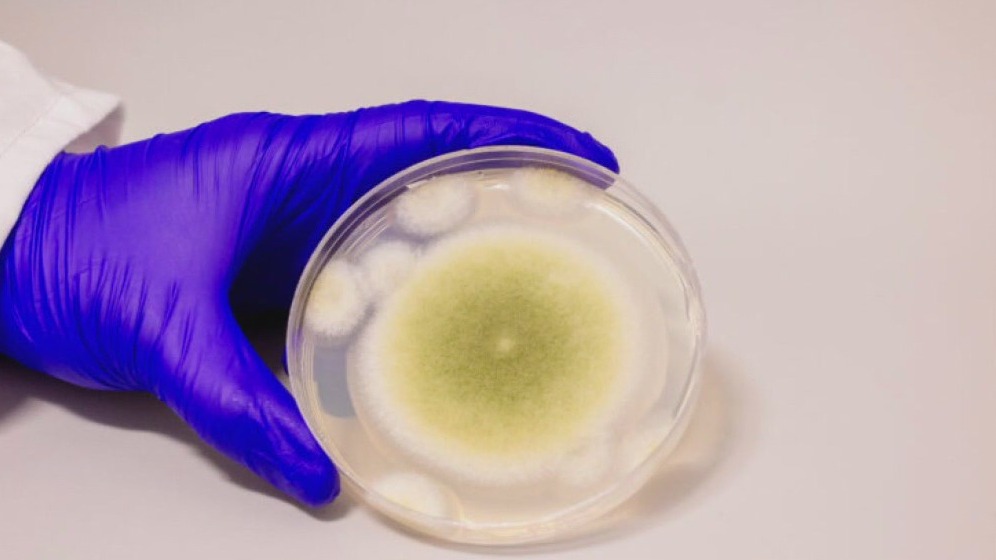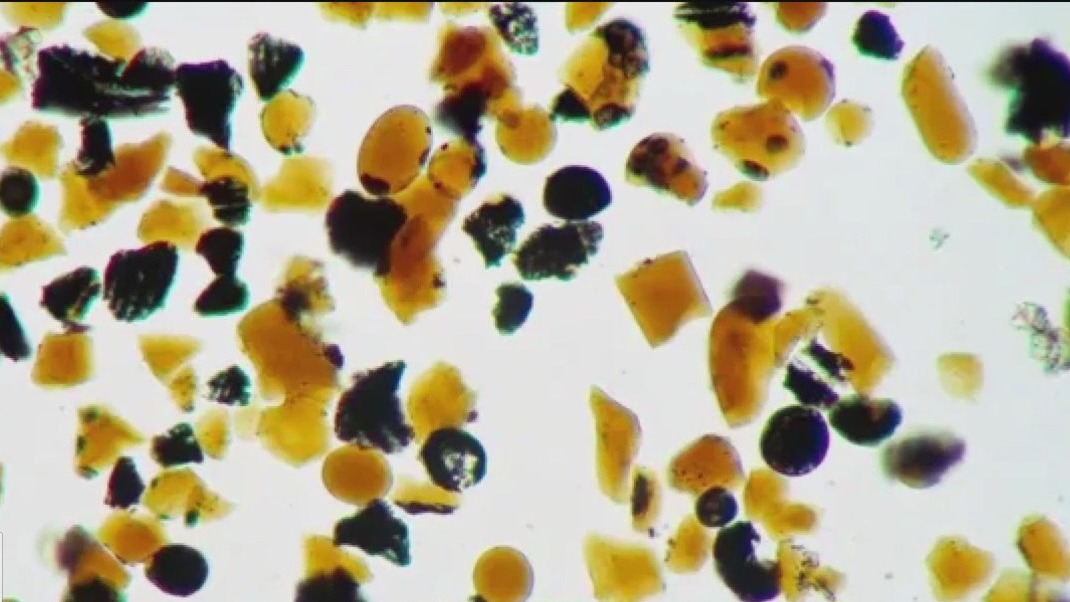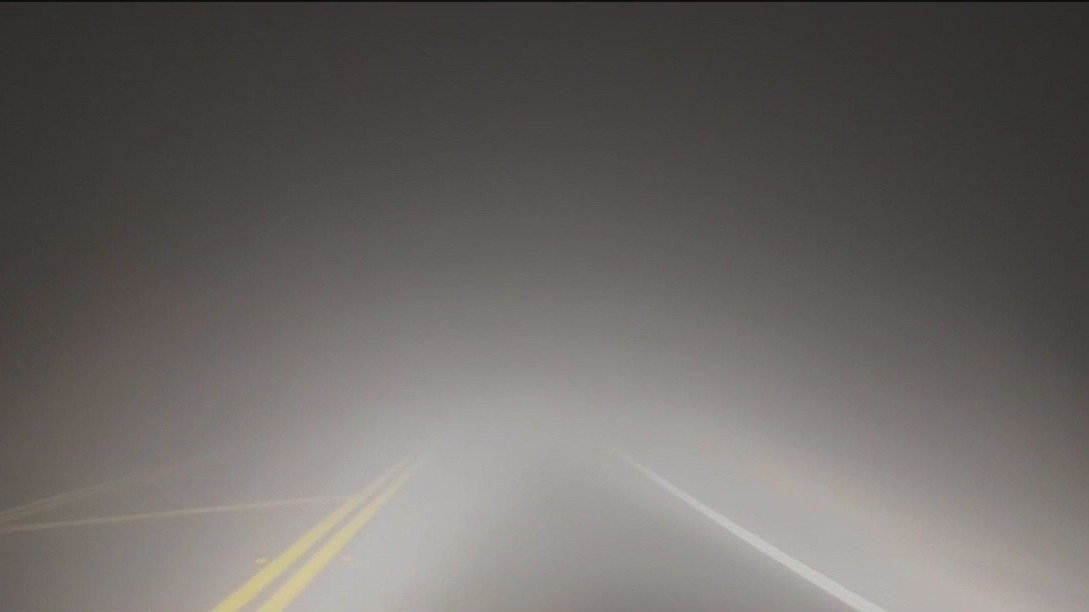No catastrophic tsunamis after major earthquake
FOX 13 Meteorologist Dave Osterberg explains why there was no major tsunami last week in the aftermath of one of the strongest earthquakes ever recorded.
FOX 13 Meteorologist Dave Osterberg explains why there was no major tsunami last week in the aftermath of one of the strongest earthquakes ever recorded.
Positive and negative lightning strikes
FOX 13 Meteorologist Dave Osterberg explains the difference between positive lightning strikes and negative lightning strikes.
FOX 13 Meteorologist Dave Osterberg explains the difference between positive lightning strikes and negative lightning strikes.
What fueled Hurricane Idalia’s rapid intensification?
FOX 13 Meteorologist Dave Osterberg explains research from USF explaining what caused Hurricane Idalia to rapidly intensify as it moved over the Gulf in 2023.
FOX 13 Meteorologist Dave Osterberg explains research from USF explaining what caused Hurricane Idalia to rapidly intensify as it moved over the Gulf in 2023.
Government plans to open up a fly factory
The facility will help battle flesh-eating parasites. Dave O explains.
The facility will help battle flesh-eating parasites. Dave O explains.
Turning toxic fungus into anti-cancer compound
FOX 13 Meteorologist Dave Osterberg explains how the fungus that may have caused King Tut?s Curse may hold the key to new treatments for leukemia.
FOX 13 Meteorologist Dave Osterberg explains how the fungus that may have caused King Tut?s Curse may hold the key to new treatments for leukemia.
Why is the moon covered in orange glass beads?
FOX 13 Meteorologist Dave Osterberg explains how microscopic glass beads discovered during the Apollo era could reveal the moon?s origin dating back billions of years.
FOX 13 Meteorologist Dave Osterberg explains how microscopic glass beads discovered during the Apollo era could reveal the moon?s origin dating back billions of years.
Gold mining is sucking the Amazon dry
FOX 13 Meteorologist Dave Osterberg explains how a certain method of mining gold is damaging the Amazon Rainforest.
FOX 13 Meteorologist Dave Osterberg explains how a certain method of mining gold is damaging the Amazon Rainforest.
Are solar storms killing SpaceX Starlink satellites?
FOX 13 Meteorologist Dave Osterberg explains why scientists say SpaceX?s Starlink satellites aren?t lasting as long as they should once they?re in orbit.
FOX 13 Meteorologist Dave Osterberg explains why scientists say SpaceX?s Starlink satellites aren?t lasting as long as they should once they?re in orbit.
Bees threatened by emerging problems
Present-day extinction rates of bees are 100,000 times higher than normal due to human impacts.
Present-day extinction rates of bees are 100,000 times higher than normal due to human impacts.
Invasive needle ants surging in southeast U.S.
FOX 13 Meteorologist Dave Osterberg explains issued posed by Asian needle ants, which are present in Florida along with other southeastern states.
FOX 13 Meteorologist Dave Osterberg explains issued posed by Asian needle ants, which are present in Florida along with other southeastern states.
Man could be key to universal anti-venom
Typically, anti-venom is developed by injecting animals, but a man from Wisconsin either injected himself with small doses of snake venom or allowed snakes to bite him and slowly increased the amount to build up a tolerance over 18 years to try to develop an anti-venom.
Typically, anti-venom is developed by injecting animals, but a man from Wisconsin either injected himself with small doses of snake venom or allowed snakes to bite him and slowly increased the amount to build up a tolerance over 18 years to try to develop an anti-venom.
Is the sun generating water on the moon?
FOX 13 Meteorologist Dave Osterberg explains how solar wind could be behind the water molecules that have developed on the lunar surface.
FOX 13 Meteorologist Dave Osterberg explains how solar wind could be behind the water molecules that have developed on the lunar surface.
How ?thirstwaves? impact soil and plants
FOX 13 Meteorologist Dave Osterberg explains a new study showing ?thirstwaves? are becoming more common. A ?thirstwave? sucks the water out of soil and plants, especially during dry spells.
FOX 13 Meteorologist Dave Osterberg explains a new study showing ?thirstwaves? are becoming more common. A ?thirstwave? sucks the water out of soil and plants, especially during dry spells.
Lightning benefits certain tropical trees
FOX 13 Meteorologist Dave Osterberg explains why tonka bean trees in Panama can flourish when struck by lightning, leading to additional research to find out if other types of trees may also benefit from a lightning strike.
FOX 13 Meteorologist Dave Osterberg explains why tonka bean trees in Panama can flourish when struck by lightning, leading to additional research to find out if other types of trees may also benefit from a lightning strike.
Certain birds experience ?road rage?
FOX 13 Meteorologist Dave Osterberg explains research showing some birds get angry over sounds they find annoying ? including noises from traffic.
FOX 13 Meteorologist Dave Osterberg explains research showing some birds get angry over sounds they find annoying ? including noises from traffic.
Researchers working on flippable vessel
Dr. Monty Graham, director of the Florida Institute of Oceanography, spoke with FOX 13 Meteorologist Dave Osterberg about the development of a one-of-a-kind research lab. It?s designed to partially fill with water, then shift upright, floating vertically.
Dr. Monty Graham, director of the Florida Institute of Oceanography, spoke with FOX 13 Meteorologist Dave Osterberg about the development of a one-of-a-kind research lab. It?s designed to partially fill with water, then shift upright, floating vertically.
Butterfly population plummeting across U.S.
FOX 13 Meteorologist Dave Osterberg explains the recent drop in the butterfly population, and why some scientists say the situation is even worse than they thought.
FOX 13 Meteorologist Dave Osterberg explains the recent drop in the butterfly population, and why some scientists say the situation is even worse than they thought.
STEM Fair winners share their projects
Dr. Catherine White, supervisor of Hillsborough County?s STEM K-12 program, joined Good Day along with this year?s STEM Fair winners to share their winning projects.
Dr. Catherine White, supervisor of Hillsborough County?s STEM K-12 program, joined Good Day along with this year?s STEM Fair winners to share their winning projects.
Using fog as a vital water source
FOX 13 Meteorologist Dave Osterberg explains how ?fog harvesting? could provide a solution to critical water shortages in some areas.
FOX 13 Meteorologist Dave Osterberg explains how ?fog harvesting? could provide a solution to critical water shortages in some areas.
FAU researchers track bait thieves
Captain Dylan Hubbard joined FOX 13 Meteorologist Dave Osterberg to explain a growing concern in recreational fishing: shark depredation.
Captain Dylan Hubbard joined FOX 13 Meteorologist Dave Osterberg to explain a growing concern in recreational fishing: shark depredation.





















